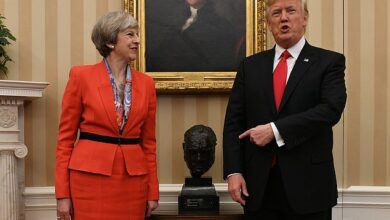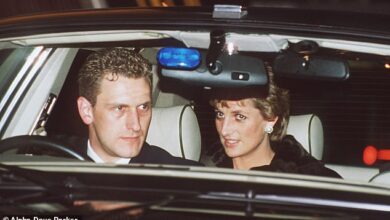Channel Nine CEO Mike Sneesby announces his shock departure from the network

Nine Entertainment CEO Mike Sneesby has announced that he will step down as president of the company at the end of this month.
Sneesby steps down as CEO and member of the board of directors. Chief Financial Officer Matt Stanton is appointed interim CEO.
His departure comes after three and a half years as CEO of the media company.
Sneesby said in a statement released Thursday that it had been a privilege to be in charge but that it was time for new leadership.
“I am extremely proud of the company’s achievements during my time as CEO and would like to thank the board, leadership team and everyone at Nine for their support during my tenure,” the outgoing CEO said.
Catherine West, the chair of New Nine, who replaced Peter Costello in June, thanked Sneesby on behalf of the board for his work at Nine.
“As Chief Executive Officer, he has led the company through the challenging Covid pandemic, secured the rights to the Olympic Games through to 2032 and continued Nine’s strategic and cultural transformation,” West said.
‘The first-class coverage of Paris 2024 demonstrated the strength of The Nine’s diversified portfolio of premium media assets.’

Channel Nine’s Mike Sneesby (pictured in 2021) has announced he will step down at the end of this month

Sneesby (pictured with Karl Stefanovic) replaced Hugh Marks as CEO of Nine in early 2021
Sneesby replaced Hugh Marks as Nine’s CEO in early 2021, beating then-publishing boss Chris Janz and former Endemol Shine chief executive Carl Fennessy to the top spot.
In addition to securing the broadcasting rights to the Winter and Summer Olympics through to Brisbane 2032 in a $305 million deal, Sneesby was also responsible for retaining the free-to-air broadcasting rights to the NRL and overseeing subscriber growth.
News of his departure follows several major rounds of layoffs earlier this year at Nine, which owns several major media properties including Nine Network, the Sydney Morning Herald, radio stations 2GB and 3AW, and Stan.
By the end of August, 85 voluntary redundancies had been made at the company, including at the Australian Financial Review, Sydney Morning Herald, The Age, WAtoday and Brisbane Times.
Among those voluntarily dismissed were a number of experienced journalists and editors.
The layoffs were part of a $30 million cost-cutting plan for the media giant that would see about 200 of its 5,000 jobs cut.
The decision led to the Pedestrian Group boss announcing his departure, alongside plans to sever deals with Vice, Refinery29, Gizmodo, Lifehacker and Kotaku.
The staff cuts and a proposed 10.5 percent pay rise over three years saw Nine’s heavily unionised staff go on strike for the first five days of the Olympics.
Newsrooms across the country returned to newsrooms after top executives agreed to an additional one percent pay raise, among other demands.
These included the ethical use of artificial intelligence, a commitment to reporting on diversity in the workplace and agreeing to negotiate a fair deal for freelancers.
Vanessa Morley, Nine’s Chief People Officer, said on Wednesday that the external review into company culture is likely to be conducted in late October.
“We remain committed to sharing the report’s findings with you and expect to do so by the end of October,” she said.
The report was launched following allegations of sexual harassment against Darren Wick, Nine’s former head of news and current affairs.
The company’s management team was criticized for its handling of the allegations and its slowness to remove Wick after several complaints. Wick left the company in March.

The news follows several brutal rounds of layoffs at Nine and a nationwide strike earlier this year
Costello stepped down as chairman in June after a News Corp journalist claimed he was pushed over at Canberra airport while questioning the chief executive about Sneesby’s response to Wick’s allegations.
Nine’s annual figures, released two weeks ago, reported a 31 percent drop in profits and a 3 percent drop in sales.
Management bonuses were cut as the company missed the board’s $533 million EBITDA target.




